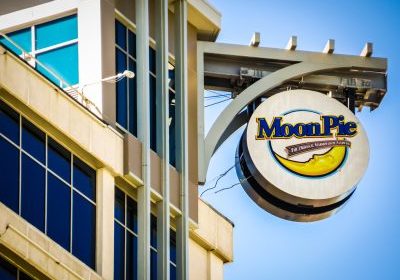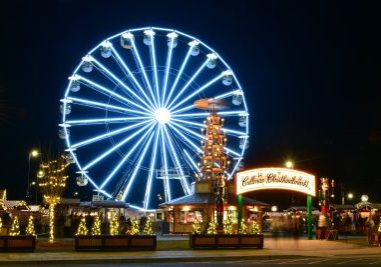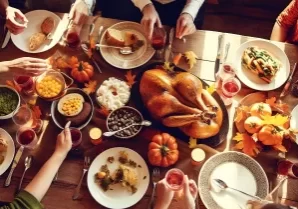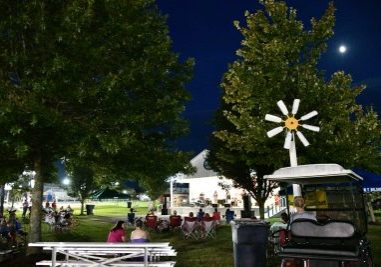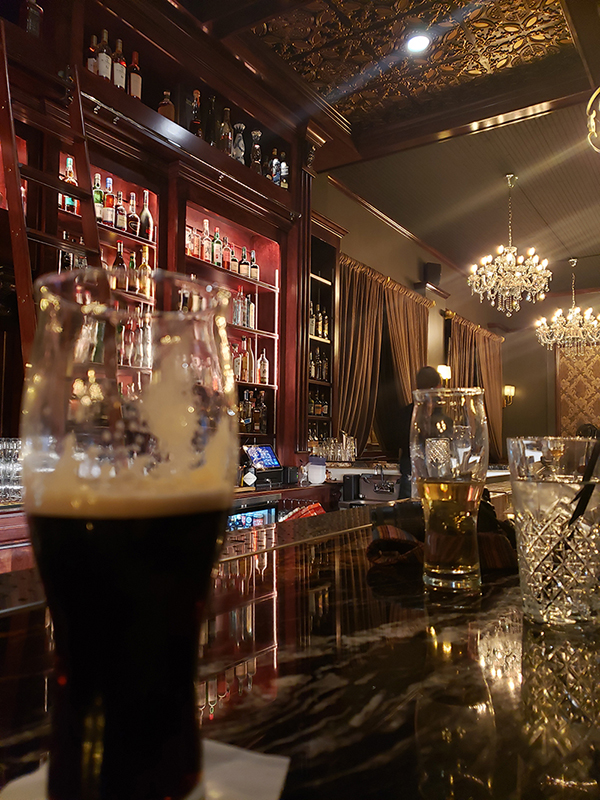
Alabama Prohibition Era Speakeasies
Once upon a time, in the heart of the roaring 1920s, Alabama’s Prohibition had cast a long, gloomy shadow over the land. Despite the dry laws tightening their grip on the populace, an air of defiance and rebellion whispered through the state. Hidden in the back alleys and disguised behind unassuming storefronts, a network of secret speakeasies began to thrive, offering a tantalizing escape from the austere constraints of Prohibition. These clandestine establishments buzzed with life, music, and laughter, as Alabamians from all walks of life gathered to sip their forbidden libations and savor the sweet taste of rebellion.
In these dimly lit havens, jazz bands played with feverish intensity as flappers danced the Charleston, their beaded dresses swaying to the rhythmic beat. The air was thick with the scent of cigarette smoke and illegal hooch, which flowed freely in spite of the ever-present risk of discovery. Bartenders, skilled in the art of discretion, mixed potent cocktails from smuggled spirits, while patrons whispered the latest gossip and exchanged knowing glances. Behind the revelry, however, lay the ever-present specter of danger – with every clink of a glass, they risked arrest and the closure of their cherished hideaways. Yet, it was this very thrill that united the patrons of Alabama’s Prohibition speakeasies, a shared act of defiance that would forever be etched into the history of the state.
The Elite Cafe (Mobile) –
Nestled among the elegant architecture of Royal Street in downtown Mobile, The Elite Cafe stood out as one of the city’s most upscale and sophisticated saloons during the Prohibition era. With its ornate facade and an air of mystique, the establishment attracted the attention and patronage of Mobile’s wealthy and influential citizens. The Elite Cafe was renowned for its impeccable service, refined ambiance, and dedication to creating an unforgettable experience for its visitors, who found themselves immersed in a world of glamour and intrigue.
Within the walls of The Elite Cafe, the sounds of high-quality jazz music filled the air, captivating patrons with soulful melodies and lively rhythms. Talented musicians graced the stage, setting the perfect tone for an evening of indulgence. The Elite Cafe’s gourmet menu boasted delicious, expertly prepared dishes that catered to the refined tastes of its clientele. The bar, manned by skilled bartenders, offered a selection of strong, meticulously crafted drinks using the finest bootlegged spirits available.
One of the most alluring aspects of The Elite Cafe was its hidden upstairs room, where patrons engaged in illegal gambling, adding an element of excitement and danger to their night out. This secret chamber was accessed through a concealed door camouflaged as a bookshelf, and only those in the know were granted entry. With the stakes high and adrenaline pumping, the hidden gambling room only fueled The Elite Cafe’s reputation as a thrilling escape from the mundane, solidifying its place in Mobile’s Prohibition-era history as an unforgettable and exclusive destination.
The Silver Slipper (Birmingham) –
In the heart of Birmingham’s notorious red-light district, The Silver Slipper beckoned those seeking an evening of excitement and debauchery. The saloon’s eye-catching neon sign illuminated the night, casting a sultry glow that hinted at the illicit activities unfolding within. This infamous establishment served as an electrifying hub of Prohibition-era indulgence, catering to patrons from all walks of life who sought a break from the restrictive conventions of the time.
Inside The Silver Slipper, the atmosphere was charged with energy, as raucous laughter, lively conversation, and the clinking of glasses filled the air. The venue’s main attraction, its tantalizing burlesque shows, featured seductive performers who captivated the audience with their provocative routines, executed with grace and artistry. Illegal gambling added another layer of excitement, with patrons huddled around dimly lit tables, placing bets and testing their luck in hopes of striking it rich.
Despite its unsavory reputation, The Silver Slipper’s allure proved irresistible to many, making it one of the most popular saloons in Birmingham during Prohibition. The establishment thrived on the sale of bootleg liquor, offering a vast array of spirited concoctions that fueled the high-spirited revelry. Though The Silver Slipper would eventually be shut down in 1930, its legacy as a symbol of defiance and decadence in the face of Prohibition would forever be etched into Birmingham’s history, serving as a reminder of a time when the city’s nightlife thrived on the thrill of the forbidden.
The Bucket of Blood (Dothan) –
Amid the bustling streets of downtown Dothan, The Bucket of Blood stood as an unapologetic bastion of lawlessness and rebellion during the Prohibition era. This rough and tumble saloon, with its gritty exterior and dimly lit interior, served as a magnet for patrons who yearned for excitement and adventure. The establishment’s notorious name, whispered in hushed tones, only added to its allure, drawing in those who sought to test their mettle within its storied walls.
Inside The Bucket of Blood, the atmosphere was raucous and intense, with the sounds of laughter, heated arguments, and the occasional shattering of glass echoing through the air. The saloon’s live music provided the soundtrack for these lively encounters, as bands played spirited tunes that fueled the rowdy revelry. Patrons quenched their thirst with bootleg liquor, served in various forms, from straight shots to potent concoctions that added to the establishment’s wild character.
Despite its reputation for violence and lawlessness, The Bucket of Blood managed to survive the Prohibition era, maintaining its status as a popular spot in Dothan. This enduring popularity can be attributed to the thrilling, if dangerous, atmosphere that enticed both thrill-seekers and those who lived life on the edge. The Bucket of Blood continued to operate until its eventual closure in the late 1930s, leaving behind a legacy of defiance and unbridled spirit that would forever be remembered in Dothan’s history.
The White Elephant (Birmingham) –
Situated in the heart of Birmingham’s red-light district, The White Elephant was a symbol of opulence and intrigue amidst the city’s pulsating nightlife. This popular saloon and gambling house, with its grand facade and air of exclusivity, attracted the attention of Birmingham’s wealthy elite, who were drawn to the establishment’s lavish offerings and tantalizing secrets. The White Elephant’s reputation for providing a luxurious, yet illicit, experience made it a coveted destination for those seeking excitement beyond the bounds of convention.
Upon entering The White Elephant, patrons were greeted with an atmosphere of sophistication and elegance. Plush furnishings, gleaming chandeliers, and sumptuous draperies adorned the establishment, creating an ambience that was both refined and decadent. The saloon’s well-stocked bar offered an array of bootlegged spirits, expertly crafted into exquisite cocktails that were savored by the city’s most discerning clientele. The true allure of The White Elephant, however, lay hidden within a secret back room, where illegal gambling took place. This clandestine chamber served as a playground for high-stakes games and daring wagers, providing an irresistible thrill for its privileged patrons.
Despite the looming threat of police raids, The White Elephant managed to operate throughout the Prohibition era, defying the law and solidifying its place in Birmingham’s history. The establishment’s enduring popularity was a testament to its ability to cater to the desires of its well-heeled patrons, who reveled in the hedonistic escape it provided. Although The White Elephant closed its doors in the early 1930s, its legacy as an emblem of luxury and defiance in the face of Prohibition would forever remain a part of Birmingham’s storied past.
The Green Door (Birmingham) –
Hidden beneath the bustling streets of downtown Birmingham, The Green Door was a speakeasy shrouded in secrecy and intrigue. Concealed beneath the floor of an unassuming clothing store above, a discreet trapdoor served as the entrance to this clandestine establishment. Those who were privy to its existence, guided by whispers and knowing glances, would descend into the dimly lit, subterranean world of The Green Door, where the lines between legality and criminality were blurred.
Upon entering The Green Door, patrons were greeted by an atmosphere of mystery and excitement. The low ceilings and shadowy corners of the basement setting provided an intimate, yet dangerous, ambiance that captivated those who sought refuge from the watchful eyes of the law. The speakeasy was a popular spot for bootleggers, who traded in illegal liquor, and other criminals who found solace in the establishment’s anonymity. The Green Door’s reputation as a hub of illicit activities, such as gambling and prostitution, made it an enticing destination for those who wished to explore the darker side of Prohibition-era Birmingham.
The Green Door’s ability to operate discreetly and maintain its veil of secrecy throughout Prohibition made it a legendary part of the city’s history. As word of its existence spread, the speakeasy continued to attract a diverse array of patrons, from thrill-seekers to criminal underworld figures, all drawn to the allure of the forbidden. Though The Green Door has long since vanished, the tales of its secretive nature and infamous activities live on, a testament to Birmingham’s hidden, yet vibrant, underworld during the Prohibition era.
The Blue Goose (Birmingham) –
Nestled in the heart of Birmingham’s red-light district, The Blue Goose was a lively saloon that served as a beacon of revelry for the city’s working-class residents. The establishment’s vibrant exterior, adorned with colorful signage and the eponymous blue goose, stood as a welcoming invitation to those seeking a respite from the hardships of daily life. The Blue Goose was famed for its live music, dancing, and illegal alcohol sales, which together created an atmosphere of joy and abandon that resonated with its patrons.
Upon stepping into The Blue Goose, visitors were instantly enveloped in a cacophony of laughter, music, and the rhythmic stomping of dancers. The saloon’s dimly lit interior, punctuated by the warm glow of lanterns and the occasional sparkle of a sequined dress, created a lively and energetic environment. Local bands provided the soundtrack for long nights of dancing and merriment, while the illicit alcohol flowed freely, fueling the high-spirited atmosphere that made The Blue Goose a cherished institution among Birmingham’s working-class population.
Despite the ever-present threat of police raids, The Blue Goose managed to persevere throughout the Prohibition era, a testament to its enduring popularity and the resilience of its patrons. The saloon’s ability to navigate the treacherous waters of the time and remain a steadfast fixture in the community was a remarkable feat, one that would forever solidify its place in Birmingham’s history. Though The Blue Goose is now long gone, the tales of its spirited celebrations and indomitable spirit continue to echo through the streets of Birmingham’s once notorious red-light district.
The 17th Street Cafe (Birmingham) –
Tucked away in the basement of a building in Birmingham’s Southside neighborhood, The 17th Street Cafe was a popular speakeasy that captured the hearts and imaginations of the city’s college students and young professionals. The establishment’s inconspicuous entrance belied the lively atmosphere that awaited within, as patrons descended into a subterranean world of jazz music, strong drinks, and sophisticated ambiance. The 17th Street Cafe was a haven for those seeking an exciting, yet refined, escape from the constraints of Prohibition-era life.
Once inside The 17th Street Cafe, visitors were greeted by the smooth sounds of jazz emanating from a small stage where talented musicians showcased their skills. The dimly lit space was filled with the warm glow of candles and the low murmur of conversation, providing an intimate setting for patrons to mingle, dance, and indulge in the speakeasy’s illicit offerings. The strong drinks served at the bar were a testament to the establishment’s commitment to providing high-quality bootlegged alcohol, and the diverse clientele reveled in the opportunity to enjoy such forbidden pleasures.
Despite the occasional police raid, The 17th Street Cafe managed to continue operating throughout the Prohibition era, a testament to its enduring appeal and the loyalty of its patrons. The speakeasy’s unique blend of excitement, sophistication, and camaraderie made it a cherished institution in Birmingham’s nightlife scene. Although The 17th Street Cafe closed its doors in the early 1940s, its legacy as a vibrant hub of music, merriment, and defiance in the face of Prohibition continues to resonate within the memories of those who once walked its hallowed halls.
The Big Apple Inn (Birmingham) –
In the heart of Birmingham’s red-light district stood The Big Apple Inn, a popular saloon that attracted a colorful array of patrons, from bootleggers and gamblers to various other characters from the city’s criminal underworld. The establishment’s vibrant facade, featuring a large neon apple, served as a beacon, drawing in those who sought an exhilarating and dangerous nightlife experience. The Big Apple Inn was renowned for its live music, lively dancing, and the constant flow of illegal alcohol that fueled the raucous atmosphere.
As visitors entered The Big Apple Inn, they were met with a whirlwind of sights and sounds. The pulsating rhythms of live bands filled the air, while the dance floor came alive with the energetic movements of dancers, their laughter and shouts punctuating the music. The saloon’s dimly lit interior was illuminated by the flickering glow of neon lights, casting an otherworldly hue over the animated faces of patrons engrossed in illicit activities. The Big Apple Inn provided a thrilling escape for those who relished in the excitement and danger of Prohibition-era Birmingham.
Despite the frequent police raids that threatened its existence, The Big Apple Inn managed to continue operating throughout Prohibition, a testament to its allure and the determination of its patrons. The saloon’s ability to withstand the pressures of the time and remain a fixture in Birmingham’s red-light district was a remarkable achievement, one that would forever cement its place in the city’s history. Though The Big Apple Inn is now a distant memory, the tales of its lively music, vibrant dancing, and daring defiance in the face of Prohibition live on in the annals of Birmingham’s storied past.
The Cozy Corner (Birmingham) –
The Cozy Corner was a small, intimate speakeasy located in a quiet residential neighborhood in Birmingham. Housed within a charming, ivy-covered brick house, it catered to a discreet clientele, including local politicians, businessmen, and socialites who wanted to avoid the attention of law enforcement. Its hidden entrance, a false bookcase, opened up to reveal a warmly lit, cozy interior, featuring plush velvet seating, dark wooden accents, and low, ambient lighting.
The owner, former chef Henry “Hank” Thompson, took pride in offering an exquisite dining experience with fresh, seasonal dishes and a well-curated selection of high-quality bootlegged spirits. The Cozy Corner also boasted a small stage for live performances, including piano recitals, jazz trios, and poetry readings. Word-of-mouth was the primary means of promotion, as no advertisements or signs pointed to its existence, helping it maintain a low profile and evade local law enforcement.
Despite its secretive nature, The Cozy Corner remained a popular destination among Birmingham’s high society even after the end of Prohibition. The speakeasy eventually closed its doors in the early 1950s, but its legacy as a hidden gem of Birmingham’s nightlife during the Prohibition era lived on in local lore.
The Black Cat (Mobile) –
The Black Cat, a renowned speakeasy in Mobile’s bustling downtown area, offered patrons an exciting escape from the restrictions of Prohibition. Hidden behind an inconspicuous storefront, the establishment required visitors to provide a secret password to gain entry. Once inside, patrons were greeted by a dimly lit, atmospheric space, adorned with vintage posters and Art Deco accents. The air was filled with the scent of cigar smoke and the sound of laughter, creating an ambiance of mystery and excitement.
Live music was a mainstay at The Black Cat, with talented jazz and blues acts performing nightly. Local musicians, as well as touring bands, graced the stage, providing high-energy entertainment that drew enthusiastic crowds. The speakeasy’s well-stocked bar offered a variety of illegal alcoholic beverages, including bootlegged whiskey, gin, and rum. Bartenders mixed classic cocktails and served them in teacups, a common practice during Prohibition to conceal the presence of alcohol.
The Black Cat’s reputation as a lively and secretive gathering place attracted a diverse clientele, ranging from high society elites to working-class patrons. The speakeasy became a melting pot of social strata, with people from all walks of life coming together to enjoy the thrill of forbidden revelry. Despite the constant threat of police raids, The Black Cat managed to maintain its operations throughout Prohibition. Its enduring popularity and legacy as a vibrant, clandestine hotspot would forever be etched in Mobile’s history.
The Underground (Huntsville) –
The Underground, a secretive speakeasy in Huntsville’s historic district, offered an exclusive haven for patrons seeking respite from the watchful eyes of law enforcement during Prohibition. Concealed beneath an unassuming building, visitors accessed the establishment through a hidden entrance, descending a narrow staircase into the dimly lit, subterranean hideaway. The Underground’s atmosphere was intimate and inviting, with exposed brick walls, low-hanging Edison bulbs, and plush seating creating a cozy ambiance.
A popular destination for Huntsville’s Prohibition-era nightlife seekers, The Underground boasted an impressive lineup of live jazz music, featuring both local and traveling acts. The captivating performances, along with the speakeasy’s small dance floor, provided an exhilarating backdrop for patrons to let loose and enjoy themselves. The bar at The Underground was well-stocked with an array of bootlegged spirits, and skilled bartenders crafted a variety of inventive cocktails that delighted patrons.
Despite the constant threat of police raids, The Underground managed to operate throughout the entirety of Prohibition, thanks in part to its discreet location and loyal clientele. The speakeasy became a cherished part of Huntsville’s underground nightlife scene, attracting an eclectic mix of patrons, from artists and intellectuals to rebellious socialites. The Underground’s enduring legacy as a hidden gem in Huntsville’s history serves as a testament to the city’s vibrant and resourceful spirit during the Prohibition era.
The Red Rooster (Montgomery) –
Tucked away in a secluded area of Montgomery, The Red Rooster was a prominent speakeasy that provided a luxurious escape from the harsh realities of Prohibition-era life. Its remote location allowed it to evade the scrutiny of law enforcement and lent a sense of exclusivity and adventure to those who visited the establishment. The Red Rooster was housed in a stately, yet inconspicuous, mansion, with a hidden entrance leading to the opulent, clandestine world within.
The Red Rooster’s interior exuded elegance and sophistication, featuring rich wood paneling, sparkling chandeliers, and plush furnishings. The speakeasy was renowned for its high-quality bootlegged alcohol and fine dining experience, offering patrons an extensive menu of gourmet dishes crafted by talented chefs. The establishment’s live entertainment often featured well-known jazz musicians of the time, and an ornate stage provided the perfect backdrop for unforgettable performances.
Throughout the Prohibition era, The Red Rooster attracted a discerning clientele, including Montgomery’s elite and visiting celebrities, who relished the opportunity to indulge in the speakeasy’s clandestine delights. Its reputation for providing a lavish haven away from the constraints of daily life allowed The Red Rooster to operate successfully until the repeal of the Eighteenth Amendment. Though the speakeasy closed its doors shortly thereafter, its legacy as a symbol of opulence and rebellion during Prohibition would forever remain a part of Montgomery’s rich history.
Today’s Alabama Prohibition Era Speakeasies
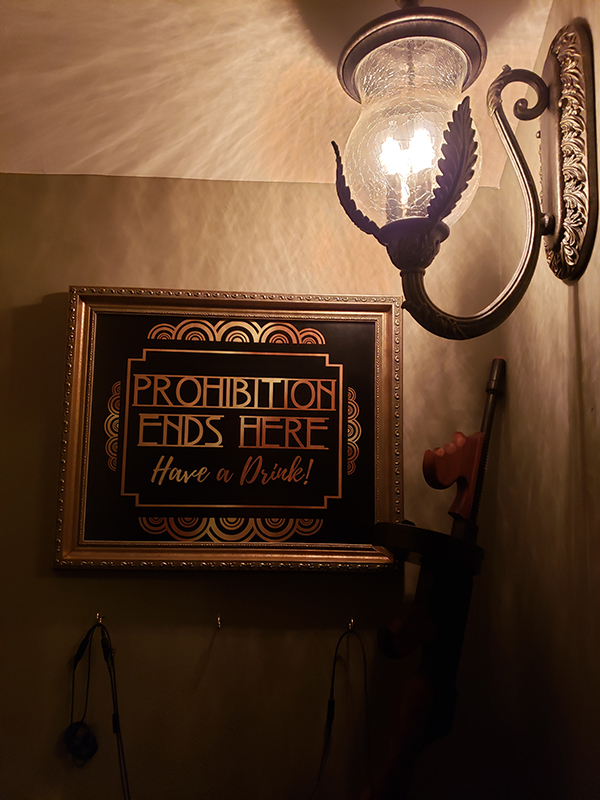
In today’s Alabama, the spirit of the Prohibition era speakeasies lives on, albeit with a modern twist. Contemporary speakeasies offer patrons a taste of the past, transporting them to a time when secret passwords and covert entrances were essential to enjoying a stiff drink. These establishments, tucked away behind hidden doors and unmarked facades, evoke the same sense of excitement and exclusivity that once fueled the clandestine gatherings of the 1920s.
Today’s speakeasies are no longer illegal, but they still retain a certain mystique that draws in adventurous souls seeking a unique night out. The atmosphere inside these modern-day hideaways is an enchanting blend of vintage elegance and contemporary flair, with dimly lit interiors, plush seating, and ornate decor harkening back to the roaring ’20s. The real stars of these establishments, however, are the expert mixologists who craft intricate and inventive cocktails, each a masterpiece of flavors and presentation. Alabama’s speakeasies continue to pay homage to their storied past while offering a sophisticated, unforgettable experience for those eager to step back in time and relive a bygone era of glamour, intrigue, and rebellion.


